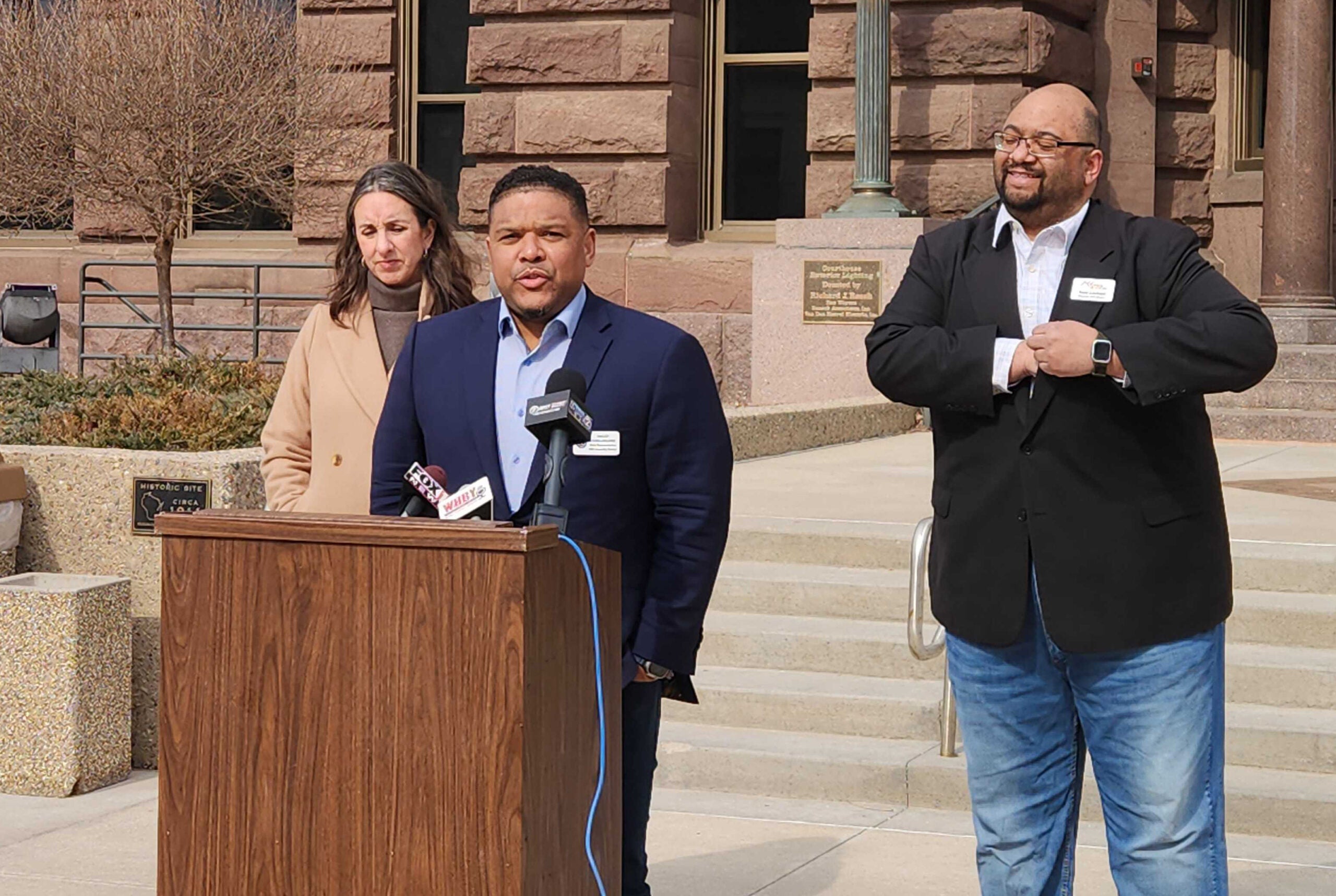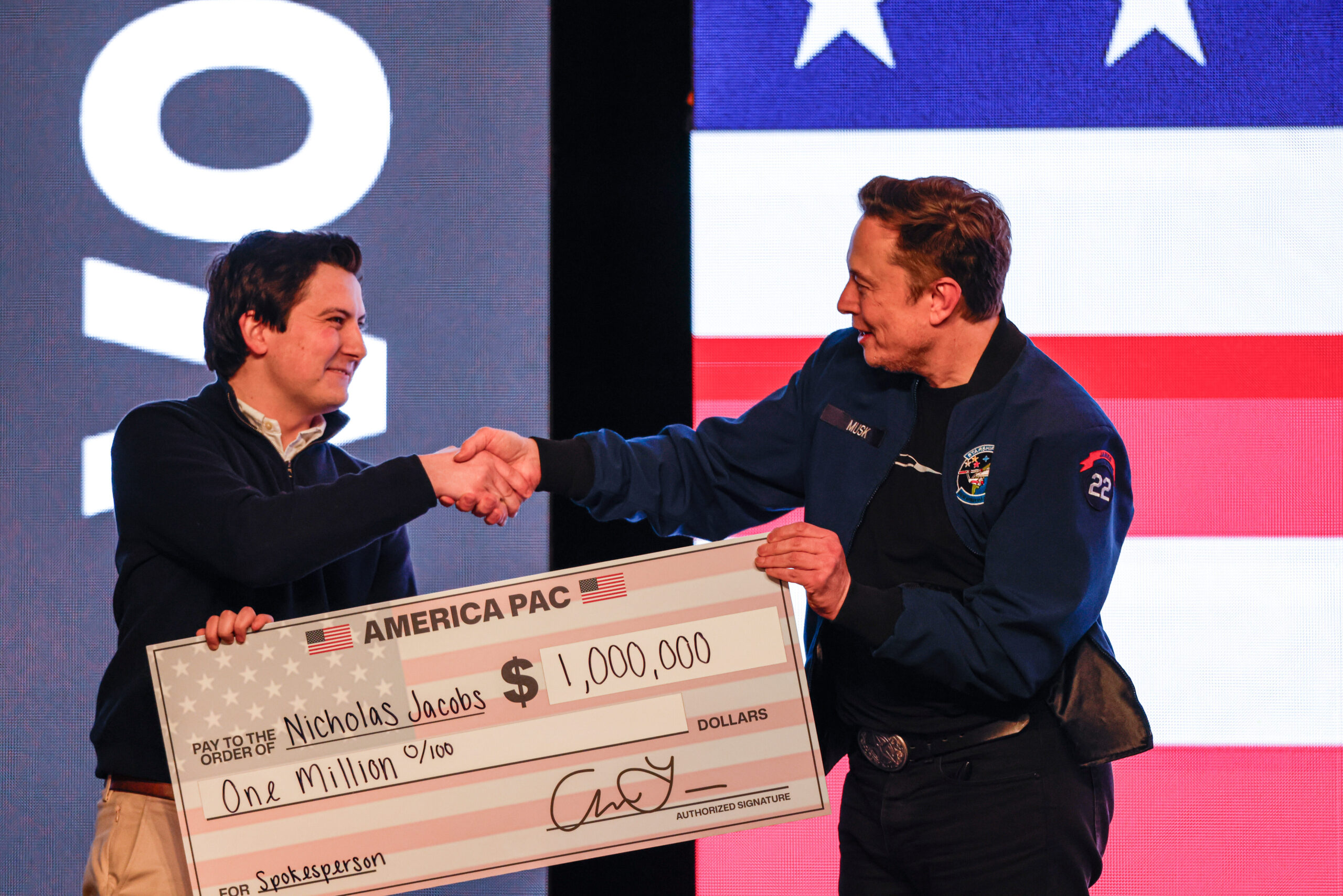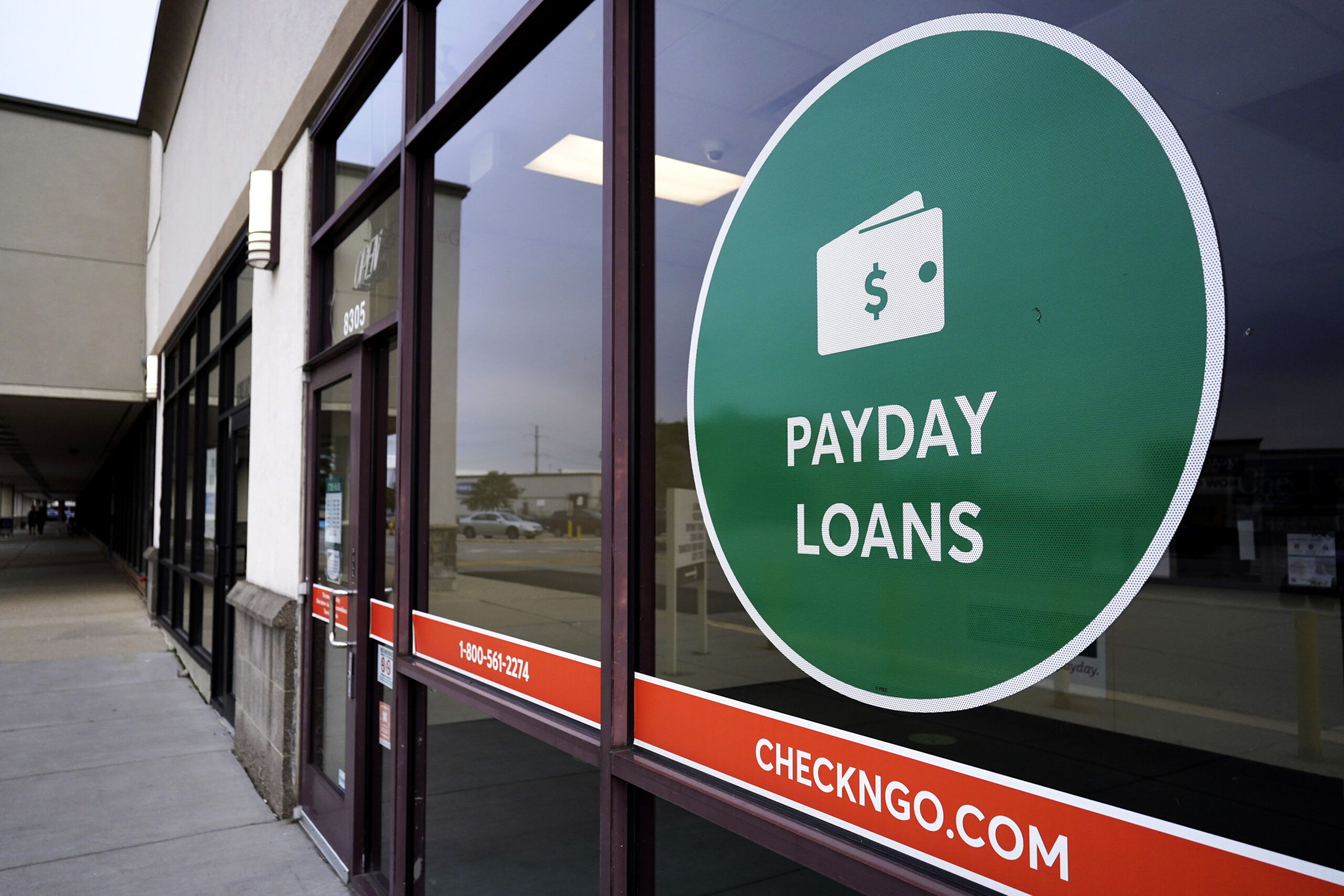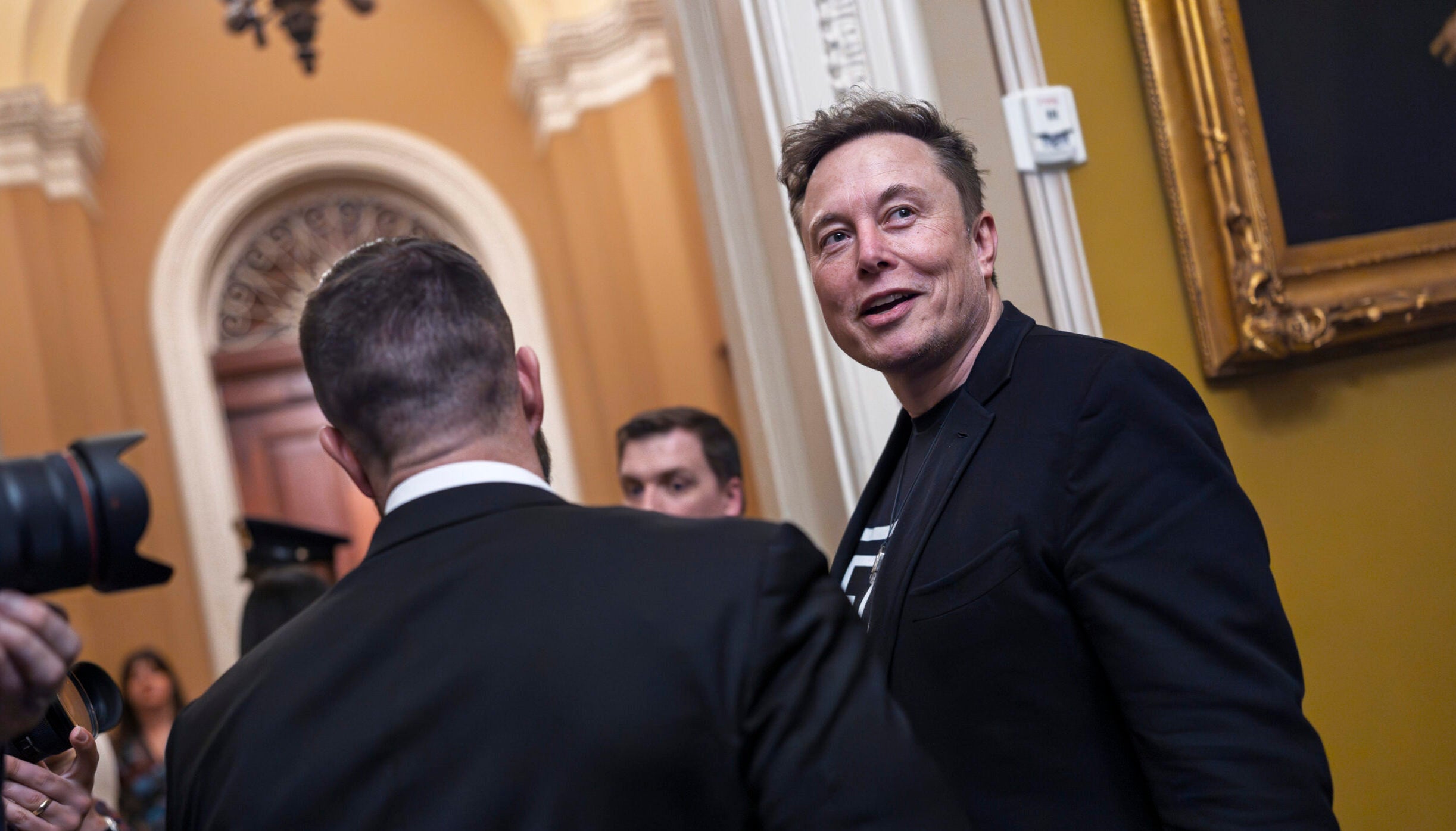Democratic state lawmakers are introducing a bill aimed at shoring up state law to prevent major political donors from handing out checks to voters who sign election-related petitions.
The bill is aimed at tightening Wisconsin’s election bribery laws in the wake of a record-setting state Supreme Court election that saw billionaire Elon Musk hand out a pair of $1 million checks to Wisconsin voters.
Wisconsin’s most recent state Supreme Court race was the most expensive on record, according to the nonprofit Brennan Center for Justice. The nonprofit tracked more than $100 million of spending on the race, or about $46 million to support liberal Judge Susan Crawford and about $54 million to support conservative Judge Brad Schimel.
News with a little more humanity
WPR’s “Wisconsin Today” newsletter keeps you connected to the state you love without feeling overwhelmed. No paywall. No agenda. No corporate filter.
State Reps. Lee Snodgrass, D-Appleton, and Amaad Rivera-Wagner, D-Green Bay, announced the bill during a press conference Thursday morning.
They spoke to reporters outside the Brown County Courthouse, less than a mile from the convention center where Musk handed the oversized checks out a little more than a week earlier.
While election bribery is illegal in Wisconsin, the lawmakers said they want to tighten language in state law to prevent billionaires from finding loopholes. They argued Musk attempted to circumvent the law by paying people for signing a petition.
“We already know that this is not legal in Wisconsin, but we want to make sure that the language is precise and clear,” Rivera-Wagner said. “The truth is, before this year, we’ve never really had a billionaire try to buy an election.”
The bill could face an uphill battle in the Republican-controlled state Legislature, where Democrats have limited power to advance legislation.
Snodgrass said the “Petition Payment Prohibition Act” would expand election bribery to include payments offered in exchange for signing political petitions during an election period.
“It should go without saying how corrosive it is to the basic idea of democracy if the world’s richest man can use unseemly, carrot-and-stick tactics to blatantly pay people to vote — let alone doing it, grinning on a stage in front of thousands of people while handing out big checks,” she said. “If elections simply become a matter of which billionaire can bribe more people to vote or even knock more doors, democracy loses its meaning.”
She called on both political parties to come together to tighten Wisconsin’s election bribery laws, saying there’s “widespread support” for removing “undue influence” from elections.
Likewise, Sam Liebert, Wisconsin state director for the voting rights group All Voting is Local, said the bill would protect Wisconsinites’ ability to vote “freely, without coercion, intimidation or interference.”
“This legislation sends a clear message: Votes and the steps that lead to voting, including petition signing, are not for sale,” he said. “Voter engagement should be based on ideas and community conversations, not cash incentives or unethical tactics.”

Rivera-Wagner, who served as the Green Bay mayor’s chief of staff prior to being elected to the state Assembly, said the city is no stranger to accusations of election bribery. That’s because Green Bay received a private grant in 2020, funded by Facebook founder Mark Zuckerberg, to help run an election in the middle of a pandemic.
Last April, Wisconsin voters approved a state constitutional amendment banning municipalities from using private grants to fund elections operations.
Rivera-Wagner said he hopes that amendment gives Republicans “the runway” to support the bill aimed at cracking down on election bribery.
“This bill is a nonpartisan bill that just says something simple: You should not be paid during the election period to sign a petition around an election,” he added. “This is something that should not have a partisan lens. This is something that we can all agree on.”
A spokesperson for Assembly speaker Robin Vos, R-Rochester, said the speaker has no comment on the bill at this time.
Wisconsin Public Radio, © Copyright 2026, Board of Regents of the University of Wisconsin System and Wisconsin Educational Communications Board.






